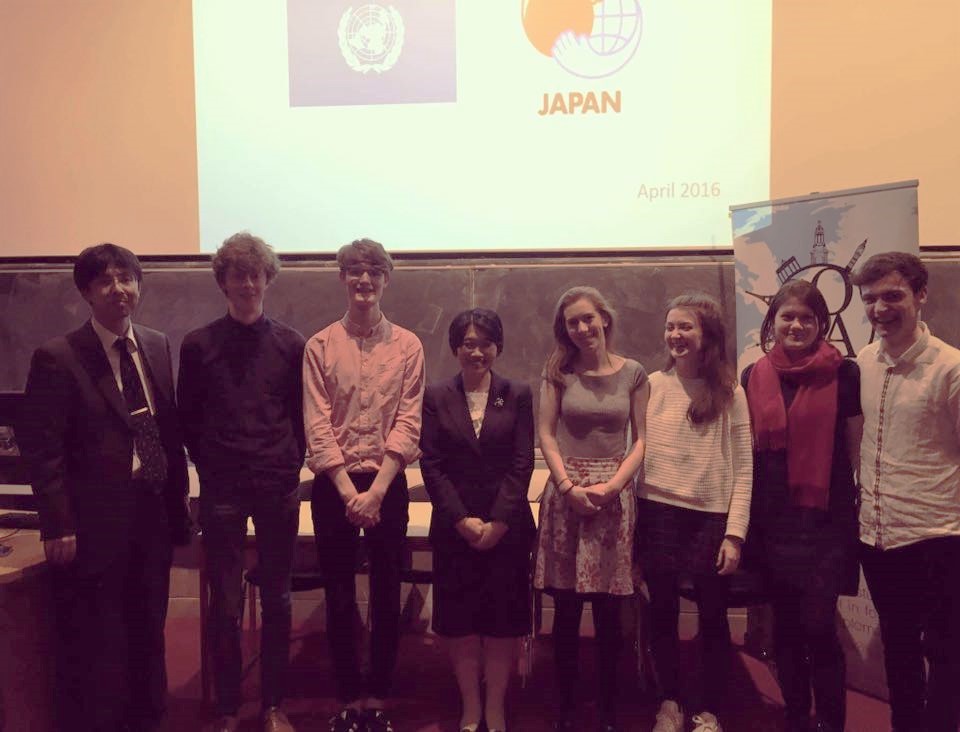
Miyoshi opened her speech by remarking that it was her “great honour and privilege” to address the society and commenced her presentation with a short video of Japan’s history with the UN. The video showed clips from the UN Headquarters in Geneva and revealed what Miyoshi had described as the “source of great national excitement” when Japan became a member in 1956.
She spoke positively of Japan’s involvement with the UN after “rising from the ashes” of conflict and nuclear destruction during the first and second world wars. As a “peace-loving” nation, Japan has played a leading role in the discussion of nuclear disarmament and non-proliferation, she said.
Japan’s contribution of funding and personnel to the UN is representative of its dedicated service, according to Miyoshi. She sees this as a strong argument for their permanent membership status on the Security Council but states that the “devil is in the detail” with regard to its international support.
While the UN, she states, has made a huge impact in the areas of peacekeeping and humanitarian aid, Miyoshi expresses the need for Security Council reform. She affirms that this is a “high priority” for Japan as they endeavour to gather more support for such reform among UN Member States.
Institutional amendment, Miyoshi believes, can be used as a means of improving the “legitimacy, credibility and effectiveness” of the Security Council. Japan, in her view, would further contribute to the “effectiveness” of the Council as a permanent (P5) member.
She asserted that “everyone needs the United Nations”. Miyoshi claims that despite the shortcomings and weaknesses of the UN, there is no other body that can claim its legitimacy – an obvious point to make, she feels, based on the important peacekeeping and security duties that the UN performs.
The active role of Irish diplomats within the United Nations was highlighted by the ambassador, having witnessed their humanitarian work while in Geneva. She commended prominent Irish figures such as Mary Robinson for their inspirational UN leadership, and further commented that Ireland’s commitment to alleviating the refugee crisis through continued negotiations and humanitarian aid was something to be “very proud of”.
When asked about Japanese relations with North Korea and China, Miyoshi replied with frankness, suggesting that political relationships with neighbouring countries are the “most important and most difficult”.
Speaking of our bilateral relations with Japan, Miyoshi remarked on Japanese Prime Minister Abe’s visit to Ireland in in June 2013 and Taoiseach Enda Kenny’s visit to Japan at the end of that year, feeling that these visits have served to strengthen relations between the two countries. In 2017, both nations will celebrate 60 years of close diplomatic connections; an event, Miyoshi concluded, that will be a noteworthy and arduous part of her career: “that year I will work very hard.”






